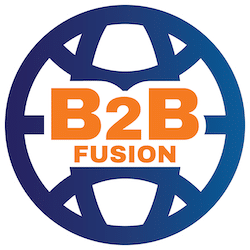Argh…i remember my operator days of running events. ‘Sales says we need to be at (insert your event here).” Up to 40% of a Marketers budget can get consumed dollar wise with events – and then there is the people support aspect. It’s the gift that keeps giving. And who can afford gifts in this economy?
How does an in-person event leverage AI in Marketing, whether it is ABX or Demand Generation to maybe reduce the costs or improve the efficiency of events? Let’s assume you are the one hosting the event in this scenario below.
Over the last decade, we’ve gathered a number of different data points below, and some of our clients, as well as prospects, are starting to take advantage of leveraging AI for their physical event strategy when they do events on their own (you may be able to leverage some of these ideas if you attend an event as a sponsor but it’s really intended for someone who is hosting an event).
Let’s begin with the components of a strategic framework.
Strategic Framework
In person events remain crucial in the marketing mix, but AI can transform how they’re planned, executed, and measured. Your conversations highlight several key approaches to help reduce the costs or improve the targeting of who will attend:
Pre-Event Planning & Targeting
Data-Driven Attendee Targeting
- Use AI to analyze past event data and identify high-value prospects
- Use gong for sales calls or for Customer Success calls and their transcripts or customer review sites like G2 to help drive the right people to your event.
- Leverage AI to identify patterns in historical attendee data to predict which prospects are most likely to convert
Personalized Outreach
- Every marketing touch that you put out, there needs to be a one to one, personalized, unique invite… specific to who they are, how they use the product, what they do. Try to avoid using AI unless there is a human in the middle inspecting the quality.
Event Experience Enhancement
AI-Powered Event Scheduling
- Use AI to create optimal agendas based on attendee interests – this is where archived history in your MAP platform can be helpful.
- This allows your team to focus on high-value interactions rather than logistics
Real-Time Engagement Tools
- Deploy AI chatbots at events to answer common questions – tools like Qualified or Drift which may require pre-programming.
- This helps when you are hosting an event and have an app
- These tools can handle routine inquiries while your team focuses on meaningful conversations
Post-Event Follow-Up & Analysis
Automated Content Generation
- Use AI to create personalized follow-up content based on specific sessions attended
- Leverage in event surveys on speakers that you might be using
- This data can be fed into AI to generate highly relevant follow-up materials for both sales and marketing
Conversation Intelligence
- Analyze recorded event conversations to identify trends and insights
- Obviously you’d want to redact any important PII information.
Implementation Roadmap
Phase 1: Foundation Building
Data Collection & Organization
- Audit existing event data and organize it for AI analysis
- Ensure proper data governance and privacy controls
Tool Selection
- Evaluate AI tools specifically designed for event marketing
Phase 2: Pilot Implementation
Select a High-Value Event
- Choose an upcoming event with strategic importance
Define Clear Success Metrics
- Establish KPIs for AI implementation at events that tie to a dashboard in Salesforce for example:
Lead Generation Metrics
- Number of leads generated
- Lead quality scores
- Conversion rate from attendee to lead
- Cost per lead
- Number of meetings booked during the event
- Sales Impact Metrics
- Pipeline generated from event
- Revenue attributed to the event
- Opportunity creation rate
- Deal velocity for event-sourced opportunities
- ROI (return on investment)
- Relationship Building Metrics
- Number of meaningful conversations
- Number of business cards collected
- New contacts added to CRM
- Social media engagement during/after event
- Net Promoter Score (NPS) from attendees
Phase 3: Full-Scale Deployment
Cross-Functional Integration
- Ensure marketing, sales, and customer success teams are aligned
- “For us to be able to step in and lead this, it means we have to lead cross functionally”
Continuous Improvement
- Use feedback and data to refine AI implementation
- “We have a culture… one of our four values… is experimentation is our DNA”
Best Practices
Balance Technology and Human Touch
The most critical insight from your conversations is maintaining the balance between AI efficiency and human connection:
The conversation emphasizes the importance of in-person interactions and human connection in building relationships and closing deals”.
Focus on Meaningful Metrics
Don’t just measure traditional event metrics, here are examples we’ve heard from clients:
- “We have to start measuring AI’s impact beyond simply content velocity, and look at how it impacts cap and pipeline”
- “The discussion highlights the need for marketers to track a variety of metrics to demonstrate the impact of their efforts”
Ethical Considerations
Maintain transparency about AI usage:
- “Ensure that your customers, if you’re using AI in some degree in research and analysis, be a front and transparent how you’ll be using their information”
Innovative Applications
AI-Powered Networking
- Use AI to suggest valuable connections at events based on interests and goals
- “We’re actually going to be implementing AI agent around inbound qualification… it can schedule and get someone on the phone immediately, or schedule a meeting”
Real-Time Content Creation
- Generate session summaries and key takeaways during the event
- “We do a lot with data analysis. So what is the health of our go to market motions”
Hybrid Event Integration
- Create seamless experiences between physical and virtual attendees
Conclusion
The future of physical events lies in creating “human-centered marketing” enhanced by AI, where we leverage AI to handle the mundane tasks. This allows your team to focus on what truly matters: creating memorable, meaningful connections with prospects and customers at physical events.
